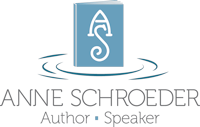10 Ways to Work a Writer’s Conference
It’s the day after the WWW Women Writing the West Conference in Seattleand I’m packing up. In my folder are business cards from an agent and two publishers who each want to see both novel manuscripts I pitched them.
It was a great conference, but it wasn’t all luck that brought me to this serendipitous place. I’m lucky—I’m not shy and that helps a lot in this industry. I just really love to connect with people.
If you went home feeling like you missed something, here’s a few suggestions for next time. They’re not my ideas. Most of these are points that agents and publishers make all the time. But sometimes it helps to see them written out so you can strategize for your next conference.
1) Study the conference flyer. That’s why it’s sent out in advance. Research every agent and publisher who is attending. Go to their websites. See what genres they represent and which books they acquire. Also study the other agents at their agency.
2) Make an appointment for a one-on-one while the time-slot selection is good.
3) Arrive early to the conference—the night before is perfect. At the Embassy Suites breakfast, I noticed a woman sitting alone. Even though I was finished eating, I introduced myself. Turns out she was an acquisitions editor. We had a delightful chat that had nothing to do with books or writing. During the conference we found other opportunities to talk. On Monday she emailed me to express her pleasure at having met me. And invited me to submit.
4) Don’t assume someone isn’t “your type”. The YA agent who buys vampire books turned out to be a new friend. We sat together at the awards dinner and she quizzed me to see if I had anything she could take a look at. Turns out, I have a novel that she’s interested in if I change the protagonist’s age. I wasn’t pitching her—she was interested in me as a person and the offer just fell into place.
5) Enter the conference contest. I found a short-story from a few years ago and entered it in the LAURA Awards. I didn’t win top place, but my third-place earned me a surprised glance from a publisher I had pitched earlier. As I returned to my table with my award and some flattering remarks about my writing ability, I watched her make the connection, face to pitch, and I know she’ll remember me.
6) Make a point to speak to every faculty member. Ask questions of them. Establish a relationship and don’t obsess about your elevator pitch. If your conversation makes the pitch feel awkward right then, wait for a better time. The key is to be authentic.
7) Dress for success. I always wear a brightly colored dress or black. I try to look professional and successful. No jeans for me at a conference—ever. After all, the presenters are all dressed professionally. It helps them to see me as one of them.
8) Volunteer to introduce a speaker, moderate a panel, make an announcement or wrap raffle items. Anything to get your name mentioned. Ask pertinent questions at the Q & A. A writer is a speaker. Demonstrate your poise. Make your name stand out. It all helps.
9) Buy a lot of books. Buy your fellow attendees’ books. Buy the presenters’ books. But be authentic about it. Talk up your common interests. Make friends. The conference is as much about face time as it is about learning new skills.
10) Write thank you notes as soon as you return home. Work to perfect the novel you plan to submit. Mention the conference in your submission letter, but don’t assume liberties because you shared a Bloody Mary with an agent on Sunday morning.
